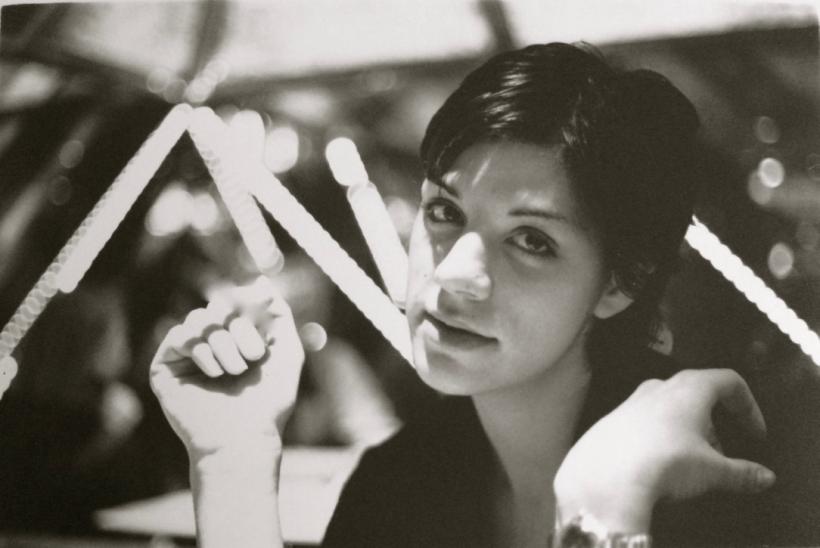
Depression is a disease of inaction, of paralysis. At least, that’s how it manifests for me.
I’ve struggled with depression pretty much my whole life. My earliest memories of stifling depression go back to the age of seven. By stifling I mean the kind of clinical depression that courses through your veins, colors every thought, and places such a metaphorical weight on you that you feel unable to move in both literal and figurative ways.
Depression is a disease of inaction, of paralysis. At least, that’s how it manifests for me.
It’s a part of myself I have hated, a part of myself I've hidden and combatted — with drugs, with sex, with working too much, talking too much, taking on more and more… and I’m fine, I’m fine, I’m fine.
Because the more I do, the more I can hide the depression that’s lurking beneath it all.
When it comes to other people who are struggling with mental health issues, I am empathetic; I am patient and compassionate. But when it comes to my own depression, I am none of those things. I am the opposite — impatient, angry, intolerant.
Getting a handle on my depression took a long damn time. Today, I am on the proper medication; I have tools and knowledge that I didn’t have even ten years ago. Because of that, I have this unrealistic expectation that it’s solved and when my depression crops up despite all my armor, I feel confused, angry, anxious — but most of all, disappointed in myself.
If I were speaking to someone else who felt this way, I would say, “It’s okay. You can be 100% grateful for your life and still feel depressed. Depression is not a choice. Depression is a chronic mental illness, and it doesn’t make you bad or broken or selfish.” And still, I struggle to believe that for myself.
I recognize intellectually that it’s unreasonable to hold myself accountable for brain chemistry that I hardly understand let alone control. But, I do. I feel responsible for it.
I also recognize that making yourself culpable for something you have no control over is cruel.
If I had survived cancer and the cancer came back, would I blame myself? If I’m honest, I might. Which is so messed up.
Part of my (admittedly dysfunctional) coping mechanism is control. If I control the situation, the emotion, the circumstance, I won’t hurt. If I take drugs to mask the emotional pain, I’m in control. If I cheat to prevent the heartache of being left or cheated on (because, of course, I’m unlovable), I’m in control. If I work, work, work, and push and don’t stop, I won’t have time for the anxiety.
It’s all a lie. Because my need to control puts me out of control.
One of my biggest life lessons that has come up time and again for me is compassion for self. And it’s a lesson that I am learning over and over. Because I am stubborn. Because my expectations for myself are ridiculous.
I have written and spoken a lot about the Reiki healing I have done for the past 18 months. My Reiki healer has repeated this message to me during nearly every visit or conversation we’ve had: “You don’t have to be Super Woman. Show yourself some compassion.”
You Might Also Like: How To Help Someone You Love Through Their Depression
What stops me?
In my work as an advice columnist and general advice giver to my friends, I have said so many times that the most significant form of self-care is to say “This is how I feel.” And I’m pretty good at doing that…. except when it comes to saying “I feel depressed.” Why? Because when I say this, I feel like I have failed. I know that’s not a fact, but it is what I feel.
My husband and I watched an episode of Teen Mom last week, and one of the women on the show who struggles with mental health issues was checking herself into treatment because she was feeling suicidal. She called her mom on her way to the airport. When her mom asked her why she was checking in, she said: “Because I’ve spent all day contemplating different ways I could kill myself.”
Silently, I sat on the couch, a lump in my throat, and tears streamed down my face. Because I know that place. I told my husband I felt for her because I know that feeling and it’s awful.
What I didn’t tell him is that I still have moments and sometimes days that I think about suicide.
Even with all I have in my life. Even with all the love around me. Even with how very much I have to be grateful for. And when it crops up, I hate myself for it. Because you don’t have a right to feel this way. Because you have so much. Because you are a mother. Because you beat this thing.
If I were speaking to someone else who felt this way, I would say, “It’s okay. You can be 100% grateful for your life and still feel depressed. Depression is not a choice. Depression is a chronic mental illness, and it doesn’t make you bad or broken or selfish.”
And still, I struggle to believe that for myself.
But, I am working on it — with Reiki, with meditation, and I am doing active work, cognitive behavioral stuff, to rewire those brain pathways. I am making decisions to consciously, continuously handle my depression, and I remind myself repeatedly that it’s a marathon, not a sprint.
My default for so many years was to jump to one crystalized thought: I want to kill myself. Today, I am working on a new one: I want to have compassion for myself, even when I’m depressed.
And, it’s working.







